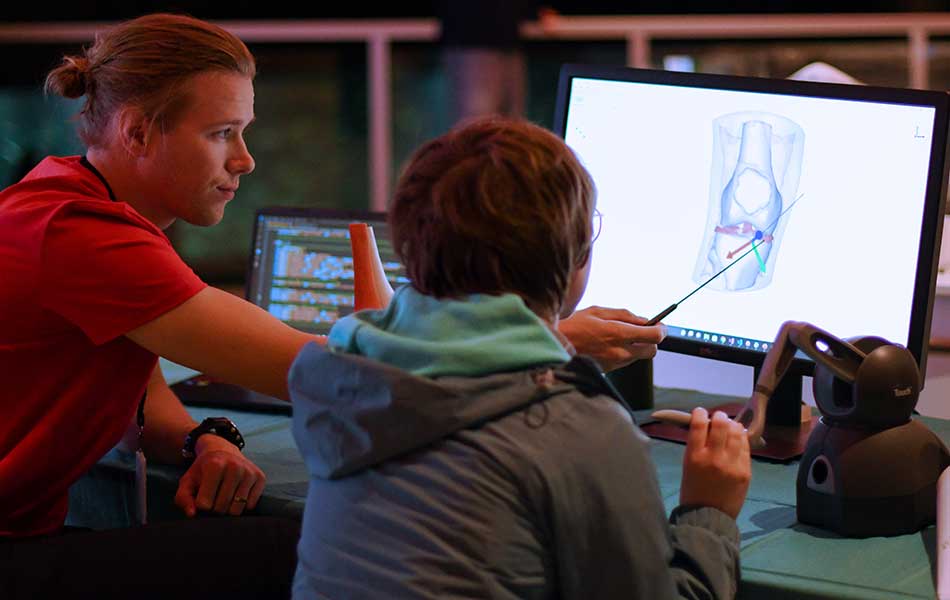What will you learn? - Mechatronics and Automation - Master's Programme
What will you learn?

On Master in Mechatronics and Automation you will have courses covering topics such as mechatronics, robotics, artificial intelligence, product design, industry 4.0, systems engineering and digital twins.
You will learn to design, implement and apply automated mechatronic systems, for example:
- industrial and collaborative robots
- solutions for automated and digitised production
- maritime mechatronic systems like autonomous ships
Throughout the master's programme, you get to work on real-world chalenges and build your own mechatronic systems in the laboratories. These are often fully functional scale models of large cyber-physical systems, for which you will also develop a digital twin.
Such a setup, with both a digital twin and a scale model, is referred to as a digital triplet. This provides you with an excellent opportunity to gain experience with 'hardware-in-the-loop' in addition to simulation using a digital twin.
You can choose between the following specialisations:
Robotics and Intelligent Systems
Robotics and Intelligent Systems
The specialisation Robotics and Intelligent Systems is about practical use of cybernetics, robotics and intelligent mechatronic systems.
In the first and second semesters, you will have a longitudinal project course that gives you an introduction to the engineering profession in automation and mechatronics at the master's level. You will also have courses in cybernetics and robotics and intelligent machines.
In the third semester, you will undertake a specialisation project in collaboration with a company, where you get to specialise in an industrial issue related to automation and mechatronics.
A set number of days are allocated to be spent at the company. The specialisation project is typically a stepping stone for writing your master's thesis in collaboration with the company. There is also a possibility to base your master's theses on ongoing research projects.
Marine Autonomous Systems
Marine Autonomous Systems
The specialisation Marine Autonomous Systems is about mechatronic systems that operates in the ocean, both above and below the sea surface.
You get an in-depth introduction to use and design of mechatronic systems in maritime operations. You get to learn and work hands-on through a "gigaproject" where you work with a large maritime project. Your courses will be linked to the project and give you additional knowledge, tools and skills related to tasks addressed in the project.
This project strucutre is typical in the maritime shipbuilding industry, and the project will be carried out in collaboration with the maritime sector.
Relevant projects that you can get the opportunity to work with through your master can be:
- retrofitting smaller vessels with renewable energy systems and electrical drive
- make control systems that can be applied on for example autonomous ship, autopilot and remote control,
- design and operate digital twins of vessels
- design and prototype subsea robotics
